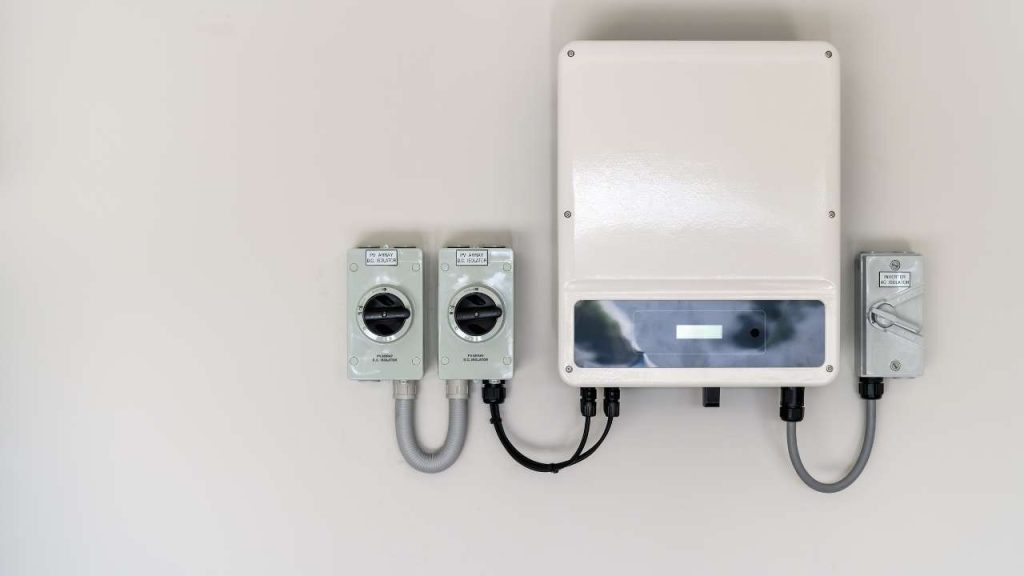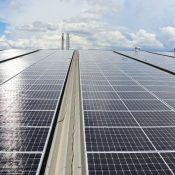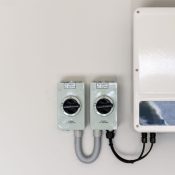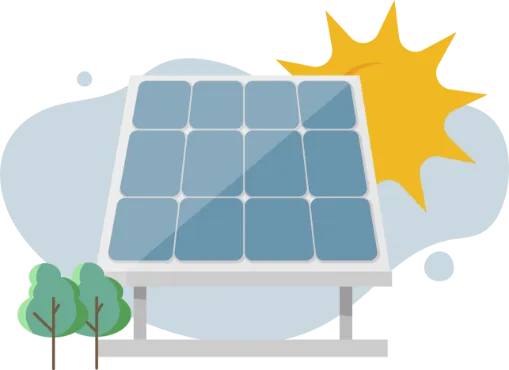Solar Battery Cost in Ireland

Solar battery prices in Ireland can vary more than most homeowners expect, and understanding these costs upfront can make a big difference when planning your solar setup. As renewable energy becomes more popular, more households are realising that a solar battery is not just an add-on.
It is a smart investment that helps store extra power, reduce energy bills, and lower dependence on the grid. From battery capacity and brand to installation and long-term performance, each factor plays an important role in the final cost. In Ireland’s changing energy landscape, having a reliable solar storage system means more control, savings, and sustainability for your home.
In this blog, we will explain how much a solar battery costs in Ireland, what influences the price, and how to choose the best option for your needs.
Let’s start!
What Is the Solar Battery Cost in Ireland?
When considering solar power for your home, it’s worth knowing how much a solar battery can add to your overall setup. On average, a 5kW battery in Ireland can cost between €1,700 and €3,000, depending on the brand and storage capacity.
This price range usually suits most homes that install one battery for daily energy use. Keep in mind that installation and equipment quality can also affect the total price. For an accurate estimate, it’s best to get a quote from a trusted solar installer who can assess your home’s specific needs.
What Affects the Solar Battery Cost in Ireland?

The overall price of a solar battery can vary based on several factors. These include the battery’s capacity, the type of inverter used, the number of batteries installed, and the cost of labour.
Understanding each of these elements can help you estimate the total cost more accurately.
1. Battery Capacity
The capacity of a battery determines how much energy it can store and directly impacts the cost. Most solar batteries start from around 5kW and can go up to 15–20kW for larger systems.
Higher capacity batteries are ideal for homes with higher energy demands or for those aiming for greater energy independence. Prices can vary depending on the manufacturer and technology used.
2. Hybrid Inverter
When installing a solar battery, a hybrid inverter is usually required to manage both solar panel input and battery storage. This type of inverter is more costly than standard string inverters that only connect panels to the grid.
The added functionality allows for smoother power use and better system efficiency. While it raises the upfront cost, it offers long-term energy flexibility.
3. Number of Batteries
The more batteries you install, the higher the total cost of the system. Most homeowners choose a single unit, which typically meets daily energy storage needs.
However, larger homes or small businesses may benefit from multiple batteries to increase capacity. Each additional battery adds both hardware and installation costs.
4. Installation Costs
Installation costs include wiring, mounting, and labour required to connect the battery to your system. The complexity of the setup and the installer’s rates can influence the final price.
In some cases, additional work such as upgrading your electrical system may be needed. Choosing a qualified installer can help avoid future maintenance issues and ensure safe operation.
What Are The Key Benefits of Installing a Solar Battery?

Adding a solar battery to your home doesn’t just increase energy independence — it also helps you save money and make better use of renewable power.
Below are the main advantages that make solar batteries a smart investment for Irish households.
1. Save Money on Electricity
By storing excess solar energy, you can use it later instead of buying electricity from the grid. This reduces your reliance on daytime rates and helps lower your energy bills over time.
Even during cloudy days, stored power keeps your home running efficiently. Over the long term, this saving adds up to a noticeable reduction in monthly costs.
2. Reduce Carbon Emissions
Solar batteries allow you to make full use of the clean energy your panels produce. This means less dependence on fossil fuels and a smaller carbon footprint.
Using renewable energy stored in your battery contributes to a more sustainable lifestyle. It’s a simple but powerful way to make your home more environmentally friendly.
3. Power Outage Protection

A solar battery can keep your essential appliances running during a power cut. It automatically provides backup power when the grid goes down, giving you peace of mind during bad weather or emergencies.
This is especially useful for homes in rural or storm-prone areas. Having stored energy available ensures that you’re never left completely without electricity.
4. Charging at Night
Many solar batteries can also be charged at night using off-peak electricity rates. This means you can take advantage of cheaper power when the grid demand is low.
The stored energy can then be used during the day when rates are higher. This flexible charging option makes managing your household energy use both cost-effective and convenient.
Conclusion
Understanding the solar battery cost in Ireland helps homeowners make smarter choices when planning their solar setup. Prices vary depending on factors like capacity, inverter type, installation, and the number of batteries, but the long-term benefits, from lower energy bills to backup power and reduced emissions, make it a worthwhile investment. A solar battery lets you get the most out of your solar panels and enjoy greater energy independence.
If you’re ready to explore your options or want an accurate quote, get in touch with Going Solar today. Their team can guide you through the best battery solutions for your home and help you start saving on energy costs.
Planning a switch to solar energy?
Contact Going Solar now and Get Free Advice & Quote Within Minutes!
Frequently Asked Questions
Contact Going Solar Now!
Joe Brennan
Founder @ Going Solar
Joe Brennan, the founder of Going Solar, is dedicated to making solar power mainstream in Ireland and meet SEAI objectives. With a focus on affordability and sustainability, he is bringing renewable energy solutions to homes, reducing costs & environmental impact.
Recent Posts







